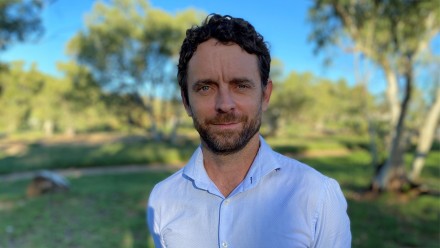Development of a Post-Traumatic Growth (PTG) literacy scale in Navy
What is trauma?
A traumatic event is defined as ‘any event that involves experiencing or witnessing actual or threatened death, serious injury or sexual violence’ (Phoenix Australia). It has been estimated that up to three quarters of Australians will be exposed to at least one traumatic event during their lifetime. Traumatic events can include a range of major life stressors such as natural disasters, combat exposure, physical or sexual assault, severe vehicle accident, significant illness, witnessing significant injury or death and exposure to grotesque imagery.
Exposure to a trauma event can result in different personal experiences and health outcomes. A growing body of research has demonstrated that some individuals can experience positive psychological changes following a traumatic event. The process of growth involves a transformation or change beyond pre-trauma levels of personal functioning.
Positive adaption following a traumatic event has been termed Post-Traumatic Growth (PTG). PTG involves a positive change in an individual’s perspective and functioning following a traumatic event. Areas of growth and positive change following a traumatic event can include relating to others, a greater sense of personal strength, appreciation of life and changed priorities, recognition of new possibilities, and spiritual development. Experiencing growth post-trauma can lead to positive mental health and wellbeing outcomes.
What is the aim of this study?
This study aims to develop a world-first scale for measuring PTG literacy and awareness. PTG literacy levels (for any population) have not been reported in the trauma literature, largely due to the absence of a defined and published scale.
It is important to understand PTG literacy levels, particularly for workgroups who might be exposed to traumatic events. Enhancing literacy can facilitate early identification of mental health issues and increases the likelihood of help-seeking behaviours.
Who can participate?
This research study is seeking the voluntary involvement of Navy participants who:
-
are continuing to serve in a SERCAT 3 to 7 capacity; and
-
have been exposed to a traumatic event (as defined above); and
-
self-identify as having experienced growth (as defined above), following a traumatic event.
Does my trauma need to have been related to my Navy Service?
No. The study is interested in growth following a traumatic event. The type of trauma, or when it occurred, will not form any part of the study.
For some participants, there may be a direct link between the trauma event and their Navy service. For others, the trauma may have been from a life circumstance away from their Navy employment.
What does participation involve?
A participant information sheet and a written informed consent form will be emailed to you, prior to commencing the study. This participant information sheet will provide further information on the study, including confidentiality, data storage, and use of your data.
If you choose to participate in this study, the student researcher will email the pilot PTG literacy scale. Following your review, you will be asked to provide written comments and feedback on the pilot scale. You will be asked about the readability of scale items and proposed revisions or additions. At no time will you be asked for details about your lived experience of traumatic events. The study will also not ask you to provide information or feedback on actual traumatic events.
It is expected that your feedback will take no more than one hour to complete. You can participate in the study at your designated workplace or a remote location. For members rendering active service, you will be considered on duty while participating in this study.
How will my feedback be used?
The researchers are interested in your lived experience regarding growth following trauma.
Your feedback will used in a consolidated and de-identified form. In completing this study, your confidentiality is assured, and secure handling of all participant information will be maintained by the researchers.
The written feedback you provide on the pilot scale will be separated from your informed consent form and email address and will remain anonymous. Individuals will not be identified in the publication or presentation of results from this study.
Why participate?
As a participant, you will be contributing to a novel research program.
We cannot guarantee that you (as an individual) will receive any immediate or specific benefit from this research. In the longer-term, the information obtained from this study could inform the delivery of targeted interventions to increase PTG literacy, for workgroups who may be exposed to traumatic events (including Defence members).
If you are currently receiving mental health care, you can discuss your participation in this study with your primary Defence Medical Officer or GP.
Does the study have Navy approval?
Yes. The study has the formal approval of the Deputy Chief of Navy (DCN) to seek voluntary participation from serving members.
The study has received approval to proceed from the Departments of Defence and Veterans’ Affairs Human Research Ethics Committee (DDVA HREC, protocol number 496-23).
Who are the researchers?
This research project is being conducted by researchers from the Centre for Mental Health Research, National Centre for Epidemiology and Population Health, at the Australian National University (ANU).
The project will be conducted by Ms Jennifer Wheeler (ANU PhD candidate), under the supervision of Dr Lou Farrer, Professor Alison Calear, Dr Amelia Gulliver and Prof David Forbes
No member of the research team will receive a personal financial benefit from your involvement in this research project.
Do you need further information?
To participate, or to find out further information about the study and eligibility requirements, please contact the student researcher, Jennifer Wheeler, at email: jennifer.wheeler@anu.edu.au.











